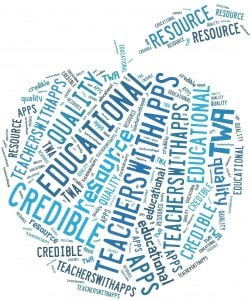How to Find the Magic in an Educational App

By: Jayne Clare
The concept of how to find the magic in an educational app came up recently during our weekly EducationalAppTalk forum. The question arose, “Why should educational apps be field-tested?” Well, we (teacherswithapps) field test apps with kids on a regular basis and have found that most often it is the kids who find the MAGIC. The magic happens when really good content comes together with a fun and totally engaging interface. Neither can stand-alone; adults often miss critical components that children find naturally in the course of their play. Developers can incorporate the best content in the world, it could be aligned to the Common Core State Standards, it could be research-based, and it could be all wrong for the age group it was designed for. Then we have apps claiming to be educational, with all the bells and whistles pulling out all the stops… curriculum never comes up and once again the developer and their app falls short.
My partner and I have been on both sides of the fence. We started out making educational apps then eventually morphed into creating Teachers With Apps (TWA), an educational app review site. TWA is unique in that we field-test all the apps we review with a cross-section of children. We feel we cannot realistically write a fair review without seeing an app in action. Naturally, you need to have a cross-section of testers, in the approximate age range the app is best suited for, in order to get a strong gauge on an apps educational potential. We don’t use a rubric, but rather a checklist based on how well an app supports learning, its usability, and the app’s quality. Additionally, we look at whether there are too many distractions going on or if an app is just plain stagnant. Long shelf life is another important determining factor for us in choosing an app to review. We are more concerned with the quality of apps we review rather then the quantity of apps we review.
Formal education often takes the play out of education and many teachers teach the way they were taught. Apps have the potential to change all this and individualize learning for students. Magic! Experiential learning is what really makes learning stick. Cooperative learning is powerful and many app developers are seeing that the single player game can easily be modified to allow for group play. The traditional school model is driving content, apps have the built in options to be project based. “Make something” and bring out what Jackie Gerstein calls “Education as it should be: passion-based.”
We like Gerstein’s list of criteria to evaluate apps:
- Does it have cool graphics and an interesting interface?
- Is there a game-like and/or creative intent to the app?
- Is it fun and entertaining?
- Does it make the user laugh with joy?
- Does it require creativity, ingenuity, imagination, and problem-solving in its use?
- Do the tasks get more complicated, requiring more skills as the user works through the game-app?
- Does the user have the opportunity to gain points and level-up?
- Does it have an addictive quality (yes, I believe in this) in that it calls for continuous play?
- Does using the app create a state of flow?
- Are there opportunities to connect with other users for socializing? problem-solving? strategizing?
Finding the right apps can be tricky. In a recent check on the stats in the educational category of new releases in the app store, it shows that the landslide has not stopped. On Friday February 15, 2013, about 100 new educational iPad/iPhone apps were released. A Pew Report from 2011, Downloading Apps for Children – Pew Internet & American Life Project states that when adults were asked what types of kids’ apps they typically seek out, the largest group (46%) said the apps they downloaded were mostly for entertainment. That’s where our work at TWA comes in, we are trying to educate the app purchasers of the world one review at a time.
Jayne Clare is still in the trenches teaching special education, presently she teaches in a resource room setting; grades 5-8. She puts the utmost value in motivating students creatively and getting them excited about their own learning. She has always known the importance of integrating technology across all curriculum and content areas. She is co-founder of Teachers With Apps with Anne Rachel. They dabbled in app development before putting all their efforts (2010) into reviewing high quality education apps. Jayne hosts Educational App Talk, a weekly Facebook Forum that discusses hot topics in the app world. She recently won the NSBA 20 to Watch Recognition Award, which identifies emerging leaders within the education technology community who have the potential to impact, the field for the next 20 years.
Her undergraduate is in Art Education, Southampton College. She has two Master’s Degrees, Special Education and Educational Technology, both from CW Post. Her passion is in working with struggling readers, reading readiness is her expertise.





Mr chris
you are the best JAYNE. and Ann rocks too